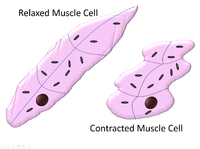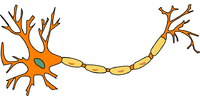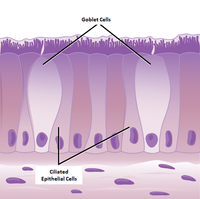Specialised Animal Cell
Contents
Key Stage 3
Meaning
A specialised animal cell is a cell that has a special shape or special features to do a certain job in the animal.
About Specialised Cells
- All animals have specialised cells.
- Specialised cells make an animal more efficient than if every cell was the same.
- Specialised cells have specific adaptations that make them good at their function.
- Animal cells can be specialised by having more mitochondria, having tiny hairs called cilia, or having an elongated shape.
Some specialised cells in animals that you should know:
Specialised Animal Cells
| Muscle Cell | Nerve Cell | Ciliated Epithelial Cells |
| Red Blood Cell | White Blood Cell | Sperm Cell |
| Egg Cell | ||
Key Stage 4
Meaning
Specialised Animal Cells are cells in animals that are adapted for a specific function.
About Specialised Animal Cells
- Multicellular organisms need specialised cells to perform certain functions for that organism.
- Specialised cells make an organism more efficient than if every cell was the same.
- Specialised cells has special adaptations that make them good at their function.
- Cells can be specialised by having more mitochondria or chloroplasts than usual. They might be specialised with tiny hairs called cilia, or have an elongated shape.
Some Specialised cells in animals that you should know:
Examples
| Muscle Cell | Ciliated Epithelial Cells | Red Blood Cell |
| White Blood Cell | Sperm Cell | Egg Cell |
| Sensory Neuron | Relay Neuron | Motor Neuron |
Beyond the Curriculum
Unveiling the Marvels of Specialized Animal Cells
Specialized animal cells, as you've learned, are remarkable for their unique adaptations and functions within the animal kingdom. However, there's a whole universe of fascinating facts and concepts about these cells that extend beyond the typical curriculum.
Cell Differentiation
While you've been introduced to some specialized animal cells, it's essential to understand how they develop through a process known as cell differentiation. During early development, cells have the potential to become any cell type in the body. Through intricate signaling pathways and genetic controls, they transform into muscle cells, nerve cells, blood cells, and more. This process is a key area of study in developmental biology.
Cellular Communication
Imagine a vast network of specialized cells communicating with each other to maintain the body's functions. Specialized animal cells often rely on complex signaling mechanisms to coordinate activities. For instance, nerve cells use electrical impulses and neurotransmitters to transmit information at lightning speed. Dive deeper into the world of cellular communication and the fascinating molecules and pathways involved.
Cutting-Edge Research
Today's scientific research is uncovering exciting insights into specialized animal cells that challenge our understanding of biology. Here are some recent discoveries:
Stem Cells and Regeneration
Stem cells are unspecialized cells with the potential to become any cell type in the body. Scientists are exploring their incredible regenerative potential for repairing damaged tissues and organs. This research holds promise for future medical treatments and therapies.
CRISPR-Cas9 and Genetic Engineering
The revolutionary CRISPR-Cas9 gene-editing technology allows scientists to modify genes with remarkable precision. This breakthrough has the potential to correct genetic diseases, design customized organisms, and advance our understanding of genetic function.
Specialized Animal Cells in Medicine
Understanding specialized animal cells is not just for academics; it has direct applications in the medical field. Here are some intriguing connections:
Immunotherapy and White Blood Cells
Immunotherapy is a cutting-edge cancer treatment that harnesses the power of white blood cells to target and destroy cancer cells. Learn how specialized white blood cells are at the forefront of this medical revolution.
Neurons and Brain-Computer Interfaces
Researchers are working on groundbreaking brain-computer interfaces that allow direct communication between the brain and external devices. Discover how nerve cells play a pivotal role in this technology, offering hope to individuals with neurological conditions.
Explore the Wonders of Specialized Cells
Specialized animal cells are the building blocks of complex life, and their intricacies continue to captivate scientists worldwide. As you delve deeper into your academic journey, consider exploring these topics to unravel the mysteries of specialized cells and their profound impact on biology and medicine.
Remember, the world of science is ever-evolving, and your curiosity can lead you to exciting discoveries in the realm of specialized animal cells.









